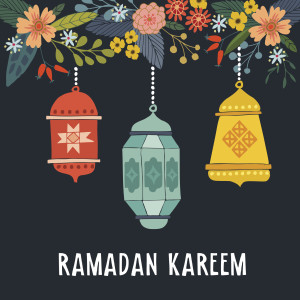
When most people thing of Ramadan, the first thing that comes to mind is fasting. While it’s true that Muslims abstain from food and drink during this spiritual month, there’s much more to the holiday than simply not eating or drinking. Ramadan has a rich heritage that dates to the first revelation of the Quran to the Prophet Muhammed. It’s an annual observance that lasts 29-30 days. The calendar dates are variable, because it’s based on the Islamic lunar calendar. In 2016, Ramadan is from June 6 through July 5.
History of Ramadan
In Chapter 2 of the Quran, it actually discusses the month of Ramadan. According to tradition, the holy scriptures were sent down during the month of Ramadan, which is sometimes referred to as the “best of times.” Some have suggested that Ramadan comes from the Syrian tradition of Lent, and while there are similarities, Muslim academics refute this claim.
Ramadan is a time when Muslims reflect on their faith and increase devotion and worship times. Fasting begins at dawn and ends with the sunset. Individuals are allowed a morning meal, before the sun comes up. This meal is called Suhar. There’s no typical or common Suhar meal because there are so many different communities of Muslims around the world. It’s suggested to eat very healthy foods that digest slowly instead of binge eating fried or sugary foods.
Muslims also abstain from smoking and sexual relationships during this month. They avoid getting into arguments, swearing and gossiping during Ramadan. This helps them focus on their submission to God and stay focused on spiritual matters. Another element of Ramadan is the reading of the Quran. Muslims will read the entire Quran during the month. For comparison, the Quran is not quite the length of the New Testament. Mosques often recite one-thirtieth of the Quran each evening during prayers. Extra prayers are performed during Ramadan, and most Muslims give extra to charity.
Muslims who are ill, too young, pregnant or nursing do not have to fast. Those who are able are required to make up fast days at a different time. Some children do attempt to fast as a form of preparation for their adulthood.
Festivities and Celebrations
At the end of the day, at sundown, the traditional food to break the fast is dates. After eating some dates, more prayers will be recited. Then, the celebratory meal of Iftar is eaten. This may be buffet style with friends and family. There are many different traditions associated with this evening meal, depending on the country and background of the faith. Most Muslims do not drink alcohol. Water is a common drink at the Iftar, but in Russia, they might include kvass, a common local drink, at the table.
Some Muslim countries decorate the streets with lanterns and lights. The end of the day might be signaled by a cannon or drums. In the United States, the President and First Lady host an Iftar dinner. In 2015, Canadian Prime Minister Stephen Harper invited Muslim leaders to break the fast with him at his residence. It was the first Iftar hosted by the PM’s office, but it’s hoped that PM Justin Trudeau will carry on the tradition.
A Ramadan Spectator
In some countries, the labor laws provide for shorter work days during Ramadan. In the United States, it’s recommended that Muslims tell their employers they are fasting. This is more for safety than to get sympathy. If you’re a spectator with a friend or coworker who is fasting, be respectful of his or her fast. If you have a meeting, make it outside of a mealtime. When someone refuses a drink or food, don’t get upset. It’s not anti-social behavior, just a special time in his or her life.

